JUSTICE AHMADI- LIFE & LEGACY
Former Chief Justice of India
Justice Aziz Mushabbar Ahmadi was celebrated for his integrity, sagacity, and steadfast dedication to justice. Serving as India’s 26th Chief Justice, he made history as only the third Muslim to rise to the highest echelons of the Indian judiciary.
Born on March 25, 1932, in Surat, Justice Ahmadi embarked on his judicial journey in 1964 as a civil and sessions judge in Ahmedabad. His trajectory led him to the position of Gujarat’s law secretary and subsequently, as a judge of the Gujarat High Court. In 1988, he ascended to the Supreme Court, where he distinguished himself through 811 benches and authored 232 judgments.
Justice Ahmadi’s contributions to jurisprudence include landmark cases that reshaped legal frameworks in India. Notable amongst these was the S. R. Bommai v India case, which dealt with the delicate balance of power between central and state governments. Justice Ahmadi authored a separate 37-page judgement, in which he emphasised the importance of secularism, accommodation, and tolerance towards vulnerable religious, social, and linguistic groups.
Deeply respected by peers and adversaries alike, he remained fearless and unfazed by politically sensitive and contentious cases, evidenced by his dissenting opinion in several high-profile cases. Noteworthy amongst these was the Second Judges case, in which he stated that the majority view “follows a path leading to a destination unknown to the Constitution.”
He was one of the two dissenting judges in Ismail Faruqui vs Union of India, finding the Acquisition of Certain Areas of Ayodhya Act to be unsecular and unconstitutional. Famously, the dissenting opinion stated, “To condone the acquisition of a place of worship in such circumstances is to efface the principle of secularism from the Constitution.” Poignantly, it further stated, “Ayodhya is a storm that will pass. The dignity and honour of the Supreme Court cannot be compromised because of it.”
Apart from judicial contributions, Justice Ahmadi was a staunch advocate for human rights and gender equality. Other initiatives, such as promoting alternative dispute resolution mechanisms and advocating for inclusive education, showcased his visionary leadership beyond the courtroom. The Indo-British Legal Aid initiative which formalised a reciprocal arrangement between the two countries was established during his tenure as Chief Justice of India, and through his personal efforts. It was under his leadership that the Ahmadi Committee was able to successfully revolutionise legal education in India, institutionalising the five year law program that has become standard practice in India today. The Judicial Academy in India too, is the fruit of his labours.
His transformative tenure in the Indian judiciary was marked by the astonishing reduction of case backlog from 120,000 to 18,000 in two short years, demonstrating the effectiveness of administrative systems he had introduced. His efforts to promote ADR mechanisms aimed at reducing case pendency in India eventually resulted in the incorporation of section 89 in the Civil Procedure Code, which includes mediation as an Alternative Dispute Resolution method. When commended for his work, he would often joke, “I did not choose the law, the law chose me.”
Upon retirement, Justice Ahmadi quickly became one of the most sought-after arbitrators of his time, involved in high-profile domestic and international arbitrations. In 1998, he led an International Court of Justice mission to Liberia to assess judicial needs. In 1999, the United Nations appointed him as part of the Commission of Inquiry on East Timor, investigating human rights violations post-referendum. He also consulted for judicial reforms in Bangladesh for the World Bank. He assessed law and human rights in Zimbabwe during political turmoil with the International Bar Association’s Human Rights Institute (IBAHRI).
In India, the Supreme Court appointed Justice Ahmadi as Chairman of the Bhopal Memorial Hospital Trust (BMHT) to oversee the construction and operation of a super-speciality hospital for treating the victims of the Bhopal gas tragedy. Remarkably, he accomplished this task in a record time of one year and remained at the helm of the hospital’s operations for twelve years. Under Justice Ahmadi’s leadership, the hospital gained recognition as a world-class facility.
A keen academic, Justice Ahmadi served as Chancellor of Aligarh Muslim University for two terms. During his years as retired Chief Justice, he actively participated in public discourse. He shared his wealth of knowledge and advocated for communal harmony, minority rights, compulsory education, technological advancements in the legal sphere, the significance of lok adalats, and the core values of liberty and democracy.
Despite his incisive observations about the role and responsibility of the Indian courts, especially during the testing times of the Emergency and the demolition of the Babri masjid, Justice Ahmadi remained forever optimistic about the Indian judiciary until the end of his days.
Justice Ahmadi’s legacy is a testament to his visionary leadership and enduring contributions to Indian jurisprudence and constitutional values.
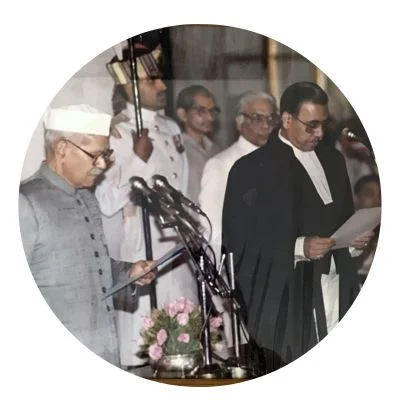
Justice Ahmadi being sworn in as Chief Justice of India by President Shankar Dayal Sharma.
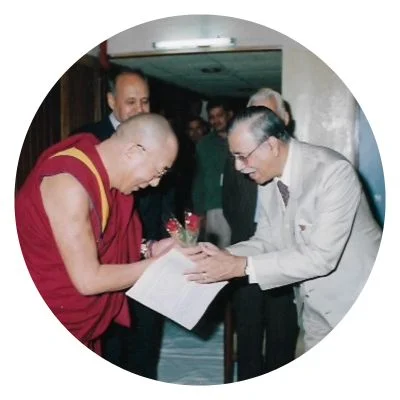
Justice Ahmadi with His Holiness the 14th Dalai Lama.
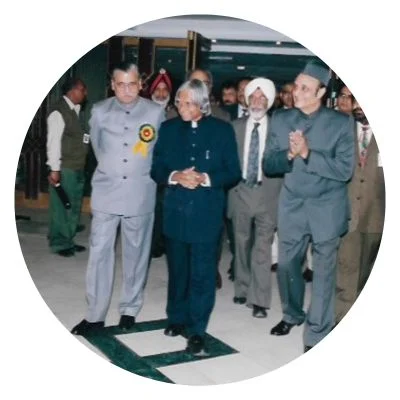
Justice Ahmadi with Former President of India, APJ Abdul Kalam.
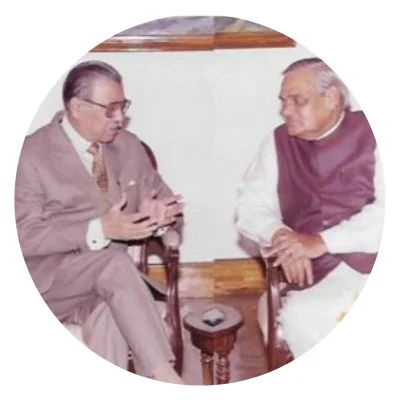
Justice Ahmadi and Former PM, Atal Bihari Vajpayee.
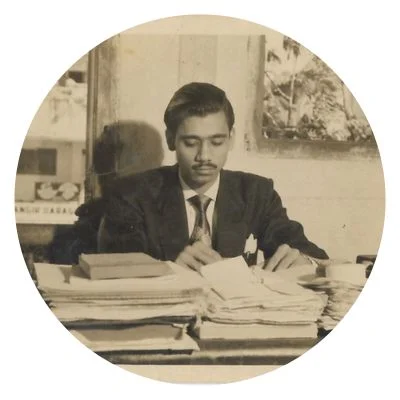
Justice Ahmadi as a young judge in Gujarat.
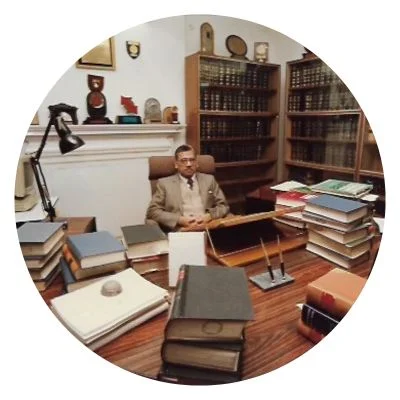
Chief Justice Ahmadi in his office, 1995.